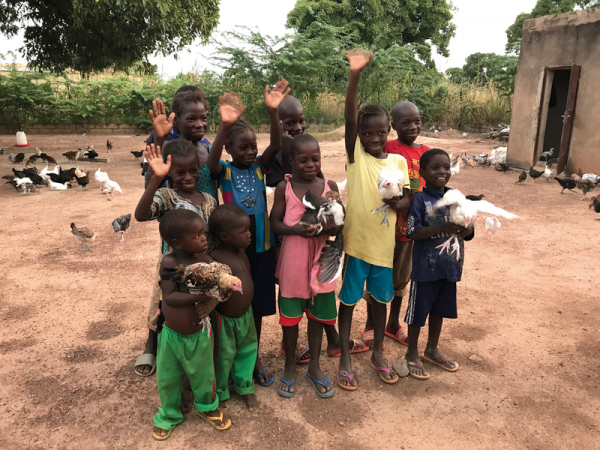Agriculture, in particular the animal protein industry, faces many questions when it comes to societal concerns. How are we creating the right environment for the animals in our care? What are we doing to minimize the amount of waste in the system? These are all valid concerns and areas where we need to be as transparent as possible in our efforts to create a sustainable food system. How can high quality genetics make the difference, now and in the future?
A commitment to sustainability is a common goal for businesses across all industries. It is a term that many people associate with being environmentally friendly. In our organization, sustainability has many dimensions, including social sustainability.
In terms of genetics, sustainable genetic progress can be easily connected to balanced breeding. This commitment to balanced breeding means that we focus on the full range of performance traits rather than one or two. Steady, balanced improvement allows animal performance to progress at a gradual and more sustainable rate. But we also know that sustainable breeding means more than just animal performance.
In our role at the beginning of the value chain, we consider economic, social, and environmental sustainability in everything that we do. We will first introduce you to the concept of social sustainability in genetics. Social sustainability must address the challenges we face in creating a more socially responsible industry – now and in the future.
Understanding social issues
Unlike many other industries, food production comes with its own range of societal and ethical questions. The use of animals for food can draw a variety of opinions. While we believe that animal protein has an important place in the human diet, economic pressures and the lack of experienced farm labor can add strain to raise animals in a way that reduces stress and discomfort. Animal mortality is another area of ethical concern as it represents an example of food waste. What can we do so that the animals in the food system are given a comfortable environment and are raised in the most effective way possible?
The shrimp industry is one example where sustainable practices are needed across the global industry. First to market with a closed cycle breeding operation, producing clean, Specific Pathogen Resistant (SPR) shrimp, our shrimp breeding strategy sets us apart from the rest. Through improved animal genetics delivering shrimp with superior performance back into the commercial market, we can produce more with far less resources and food waste. A strategy that will strengthen the shrimp industry by producing healthy, disease-resistant, high-quality animals right from the start.
By fully understanding the root causes of these ethical concerns, we can contribute to a more transparent, responsible food system with high quality animal genetics.
How do we take action?
A socially sustainable pathway for the entire animal protein industry is not as far away as it seems. Ethical concerns are already being implemented as part of our focus on sustainable animal breeding.
All animal behavior serves an evolutionary purpose. Over millions of years, animals developed certain protective behavior in order to survive. In a farm setting, behavior such as pecking can cause damage and make management more difficult. As a breeding company, our role is to understand animal interaction in order to make selections that will result in a more docile and resilient group of animals.
Hendrix Genetics is one of 20 partners working together as part of The ChickenStress European Training Network (ETN). This project trains future leaders in a range of scientific studies involving poultry stress responsivity in various environments, including the impact of their housing system and feed program on health and welfare. The ChickenStress project aims to find out how the stress response is regulated in the bird’s brain and how genetics and living environment of the laying hen can reduce chronic stress.
Our breeding program for our swine dam lines require all purebred sows to be housed in groups. By doing this, we are able to choose sows that will perform well under these conditions with the right behavior and mothering ability. Our aim is to select good mothers that can farrow and wean as many pigs as the number of functional teats, eliminating the need to use nurse sows which can be very stressful for piglets and can add more strain for farm workers.
As new, innovative farm systems become the norm, it is important to lead forward by examining how animals behave in more open environments such as cage-free egg farming and sow group housing. We can then make selections so animals can thrive in the right system.
Taking action in animal genetics
What defines ethical, sustainable animal breeding? There is currently no standard, but for most consumers, they know it when they see it.
Source : Hendrix Genetics








